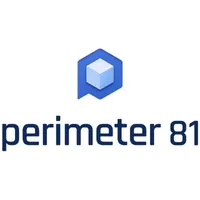Best SDP providers of 2026
Embrace zero-trust security with a software-defined perimeter solution

Sign up for breaking news, reviews, opinion, top tech deals, and more.
You are now subscribed
Your newsletter sign-up was successful
Rather than relying on network firewalls, Software Defined Perimeter (SDP) focuses on dynamically protecting resources by creating secure connections between assets and the users. Needless to say, in today’s world of remote work, having such an architectural solution can ensure safety for both the company and the users.
Thankfully, today’s SDP solutions are quite versatile, and thanks to a growing supply in the market, they have also become fairly cost-effective for most businesses. While numerous SDP offerings adopt a zero-trust methodology by concealing services, apps, networks, and devices until validation of requests, they also contribute to creating tailored network architectures that enhance the effectiveness of zero-trust security methods. To be considered part of the SDP category, a product needs to possess dynamic, detailed network segmentation capabilities.
So, if you want to start building your zero-trust architecture with an SDP solution, here are some of the best providers worth considering.
Perimeter 81's SDP: Revolutionize Your Security
Embrace next-gen network protection with a Software-Defined Perimeter (SDP). Ensure secure access for your distributed workforce, minimize threats, deploy in minutes, and scale with ease.
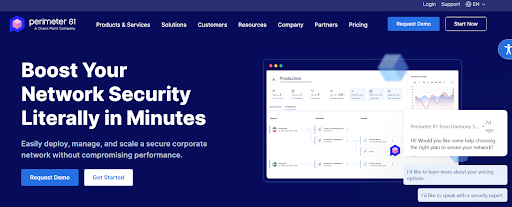
Perimeter 81
If you’re looking for peace of mind in the cloud, then Perimeter 81 has you covered. It provides secure access to resources from the end-point, datacenter all the way to the cloud. It easily integrates with major cloud providers and gives administrators incredibly detailed access segmentation capabilities.
Perimeter 81 currently offers four different-sized plans, the most budget-friendly of which starts at $8.00 per month (per user), if you go for annual billing, and $40.00 per month (per gateway) and includes a whole array of features, including network visibility, hybrid security, and zero-trust policy-based segmentation, as well as complete integration with all major cloud providers.
Also, all plans come with an easy-to-use central dashboard, activity reports and analytics, beginner-friendly apps, plenty of add-ons, and superb customer support to back you up when needed.
Since all of Perimeter 81’s SDP solutions are “commitment-free” and come with a 30-day money-back guarantee, feel free to try them out with no strings attached.
Sign up to the TechRadar Pro newsletter to get all the top news, opinion, features and guidance your business needs to succeed!
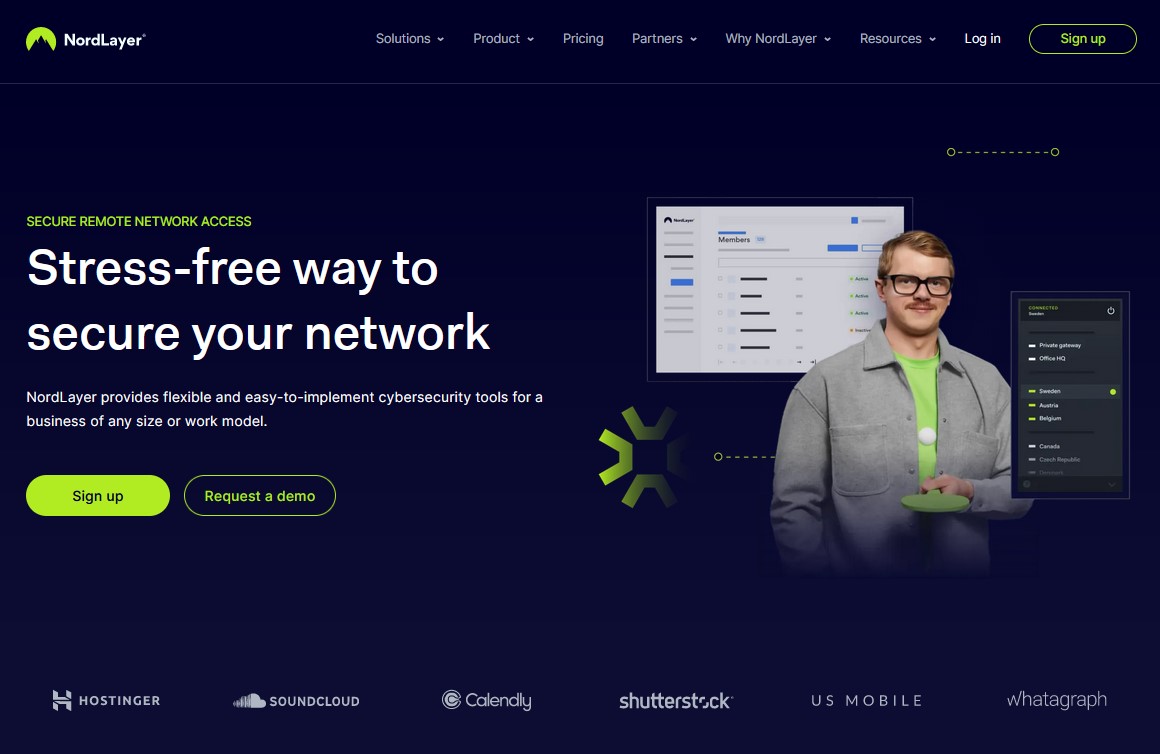
NordLayer
As with most of NordLayer’s offerings, SDP too, comes bundled with another solution, thus offering a more flexible product to the customer. Namely. Secure Service Edge is offered within an SDP environment, enabling companies to secure applications, assets, and data that are being exchanged by your employees. NordLayer enhances organizational security by establishing encrypted channels from employees' devices to Secure Web Gateways, effectively sealing all potential access points. In alignment with the principles of Zero Trust security, every access request undergoes rigorous scrutiny before being granted network entry. You can rest assured that MFA and biometrics are there to keep breaches to a minimum.
The app itself sports a modern dashboard from which administrators can easily set up all required policies. A stand-out feature is ThreatBlock which offers detection of jailbroken devices and DNS filtering. Finally, for companies worrying about certification, the service has recently obtained ISO/IEC 27001 for managing data security.
For detailed pricing, you will have to go through the sales channels, to get a custom quote.
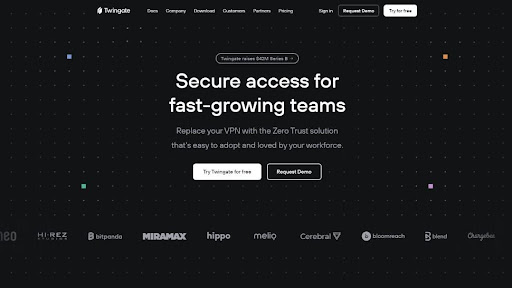
Twingate
Twingate focuses on providing companies with the tools to help them create a modern zero-trust network without making any changes to the underlying infrastructure. It is a cloud-based service that delegates authentication to a third-party identity provider. A notable aspect of Twingate SDP is its approach to user access authorization. It consistently requires a second or even third level of verification, depending on how critical the access decision is. This means that no single element has the authority to permit traffic flow to another component or resource within your remote networks, ensuring a more secure and controlled access process.
With Twingate you can apply two-factor authentication (2FA) for anything, add RDP, SSH, and similar services, and also integrate your SDP with identity providers (like Google Workspace, Okta, and OneLogin) to smoothly onboard and off-board users.
What’s more, you can use Twingate completely free of charge for up to 5 users, and if you want more, you can try out any of their plans with a 14-day trial before making a decisive decision.
The cheapest plan costs $5.00 per month and supports up to 100 users and up to 20 remote networks in total, which makes it best suited for small teams.
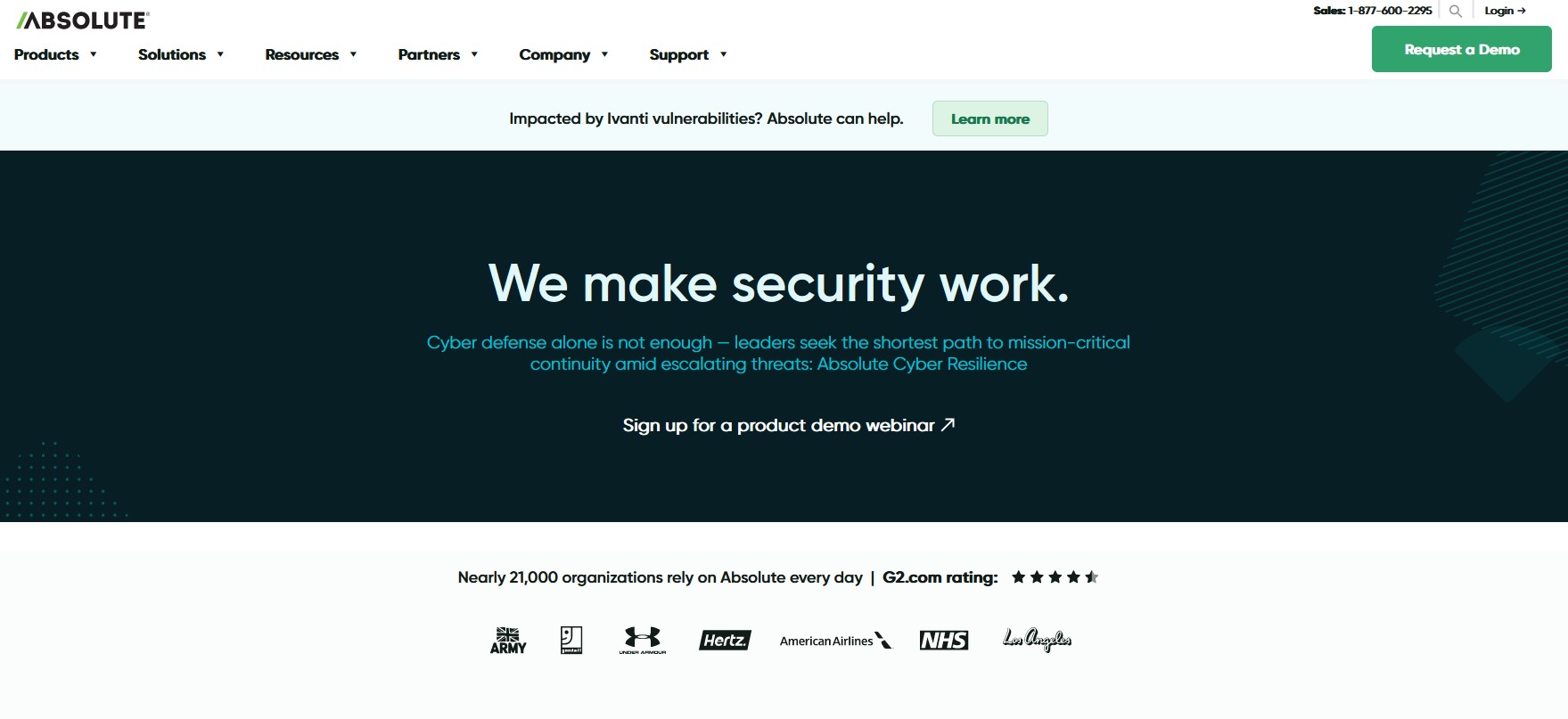
Absolute
Formerly known under the name NetMotion, Absolute Platform now represents a unified approach to online safety and security, offering a solid SDP solution to its clients in a bundle. It takes a meticulous approach to security, checking each request with the help of dynamic and contextual data to determine whether to give access to a resource. Additionally, NetMotion SDP employs a strategy of making applications completely invisible to unauthorized users. This level of security ensures that your organization remains safeguarded against potential intruders or connections that pose a high risk.
What sets Absolute Platform apart from the competition is that it offers a VPN and SDP within a singular, user-friendly interface. This integration is streamlined through one client, one console, and an efficient policy engine, simplifying the management of security protocols and enhancing overall operational efficiency.
While the pricing isn’t available on NetMotion’s official site, you can sign up for a demo and get a quote, but keep in mind that this SDP solution is geared towards enterprise environments.
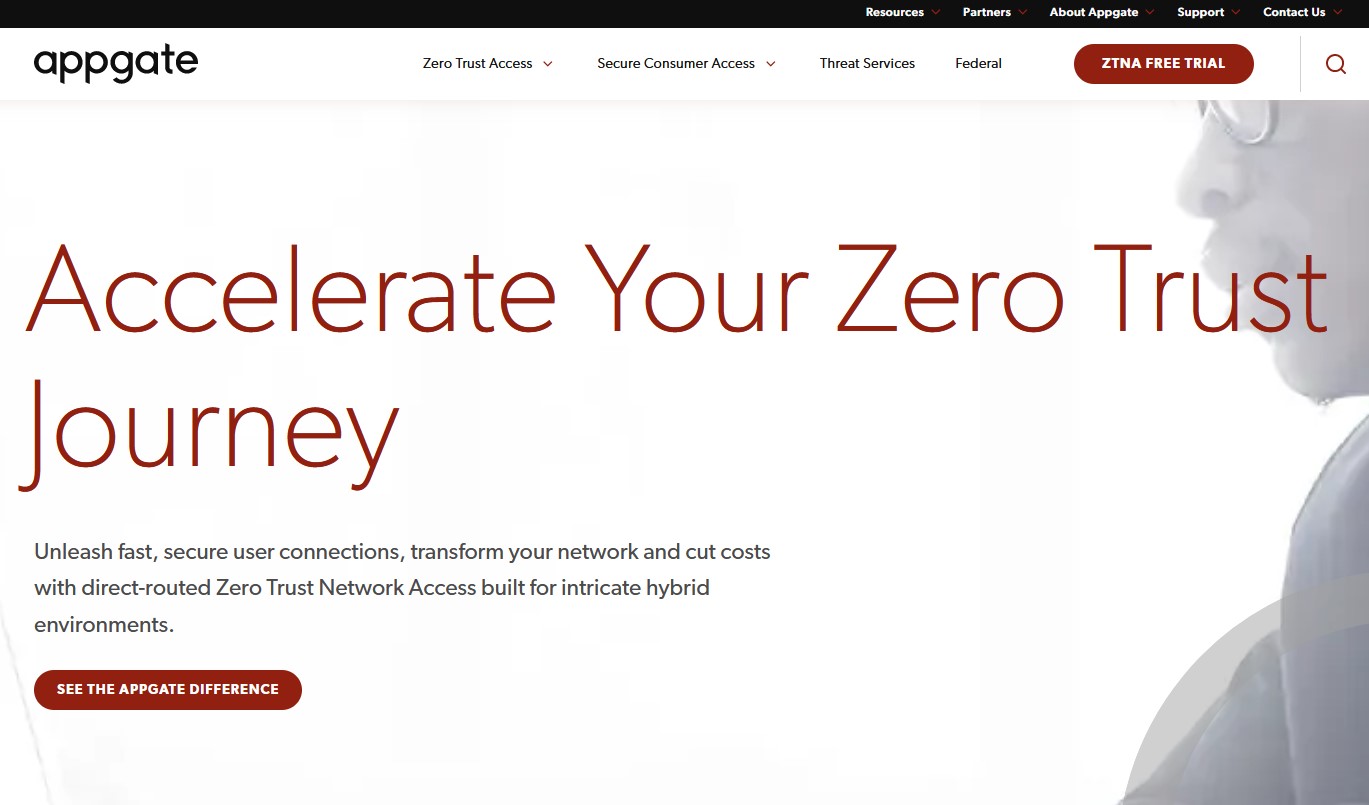
Appgate
Created with high availability in mind, Appgate’s SDP solution can be installed in physical, cloud, or virtual environments. It can also be integrated with tons of third-party apps including threat intelligence platforms (TIPs), identity platforms, endpoint security solutions, various web security tools, and more.
Appgate SDP’s key features include an identity-centric approach, concurrent access, clocked infrastructure, dynamic policy resolution, and a bi-directional API interface to help with third-party integrations.
Although Appgate’s pricing details aren’t available on the official site, users have an option to “talk to an expert” and find a bit more about everything, pricing included.
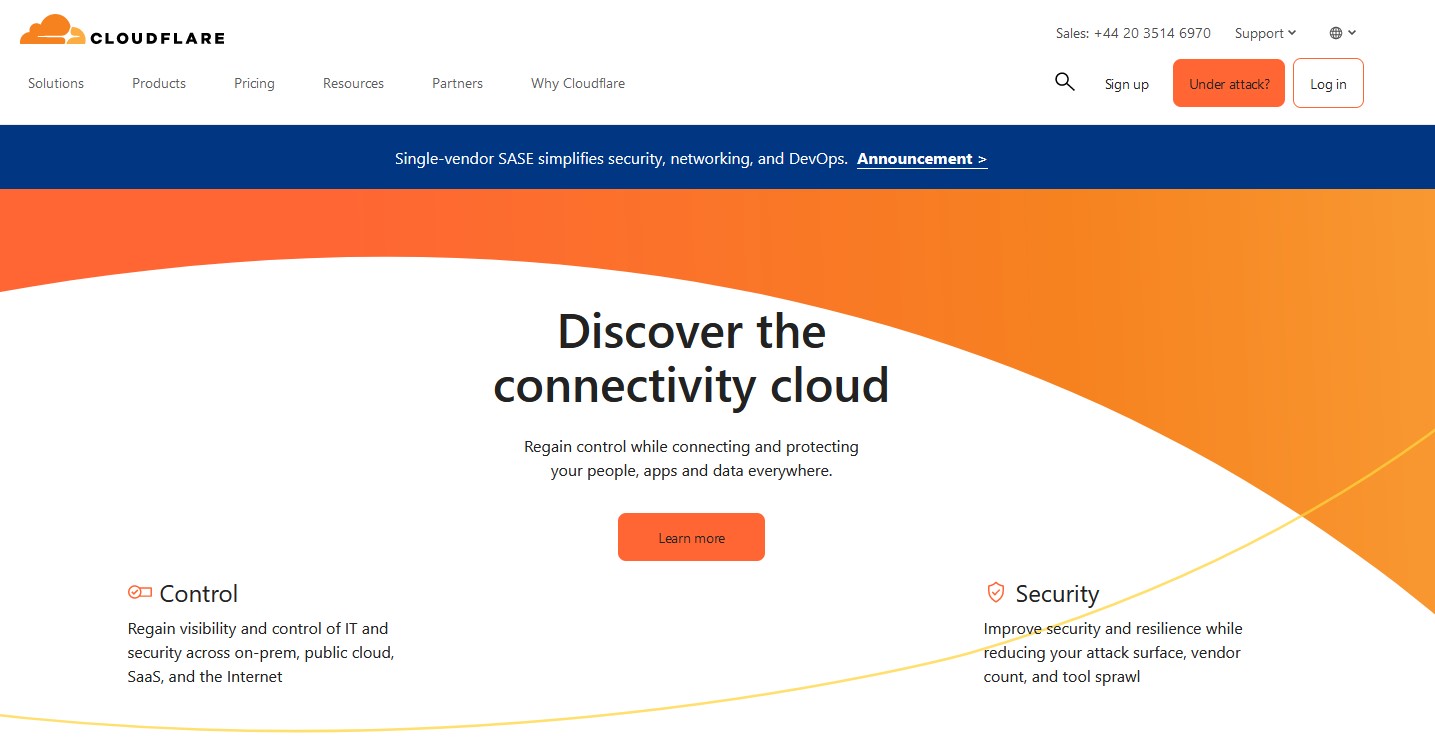
Cloudflare
Cloudflare’s Zero Trust promises to provide strong security, powerful performance, and high reliability - all in one package with its newest security solution. It’ll also give you complete and consistent controls across all on-premises, cloud-based, and SaaS apps.
Zero Trust integrates with plenty of identity providers and protects all your apps with posture, identity, and context-driven checks. And if you wish to sneak a peek into your employee activities (or perform an audit) inside your apps, you can do it without any difficulty.
Cloudflare’s pricing plans start with the same core set of security features including zero-trust network access (ZTNA), private IP address routing, firewall as a service (FWaaS), cloud access security broker (CASB), secure web gateway (SWG), HTTPS inspection, and DNS filtering.
This feature-rich platform can be yours for free (for up to 50 users, 3 network locations, and 24 hours of activity logging) or you can pay $7.00 per month in a pay-as-you-go plan.
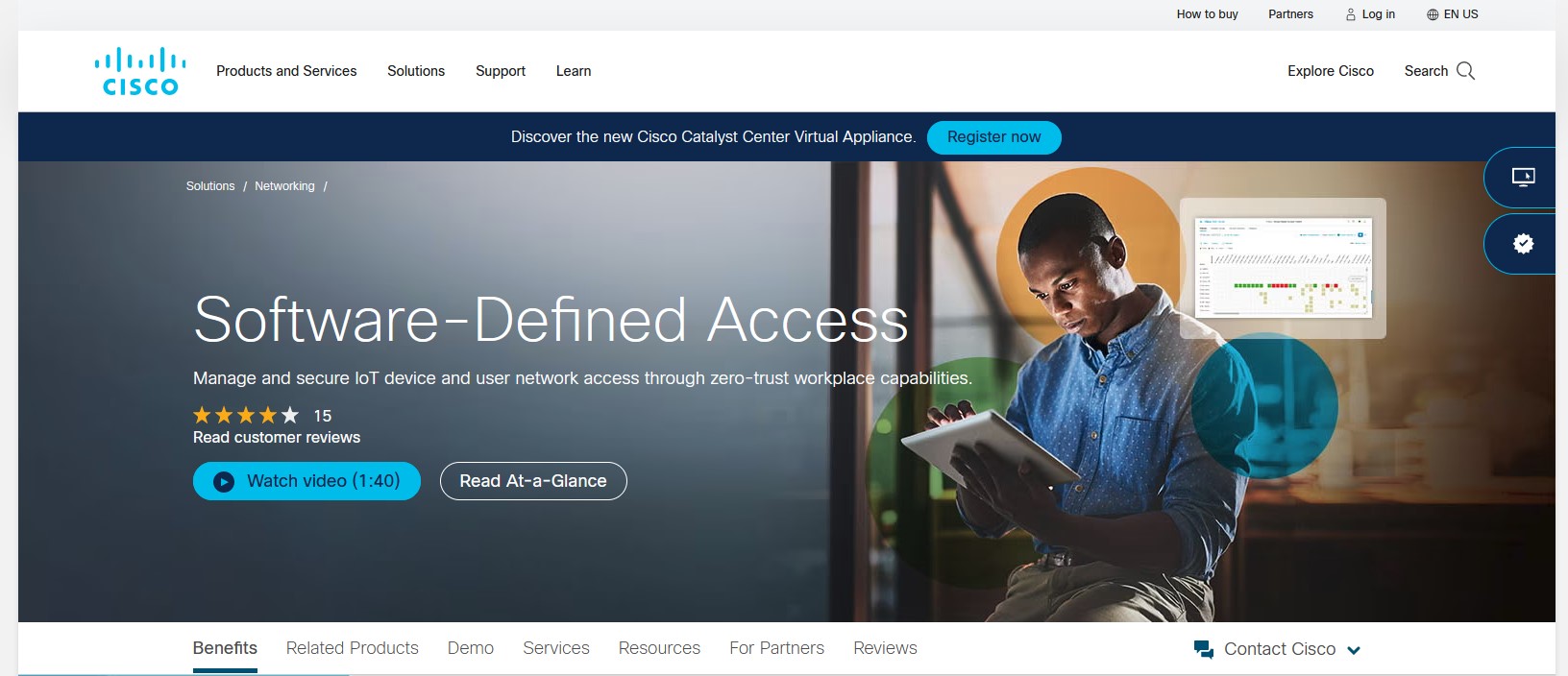
Cisco Software-Defined Access
Cisco SD-Access effectively controls and safeguards access to IoT devices through the use of endpoint trust analytics. This solution is designed to implement zero-trust security comprehensively, covering all applications and network settings. At the heart of the solution, the Cisco DNA Center facilitates network automation and combines with the Cisco Identity Services Engine (ISE) to establish policies for segmentation and access control.
While this solution is reasonably simple to use, it’s targeted at medium and big businesses looking for a way to safeguard their data and IT assets. There are no pre-made SDA packages, meaning you can shape your own solution depending on the security problems you’re trying to solve and your overall business needs. However, the entire process is quite simple since Cisco SDA creates virtual networks to help apply consistent policies across the whole spectrum.
While Cisco offers no free trial, you can sign up for webinars and demos to find out more about their solutions.
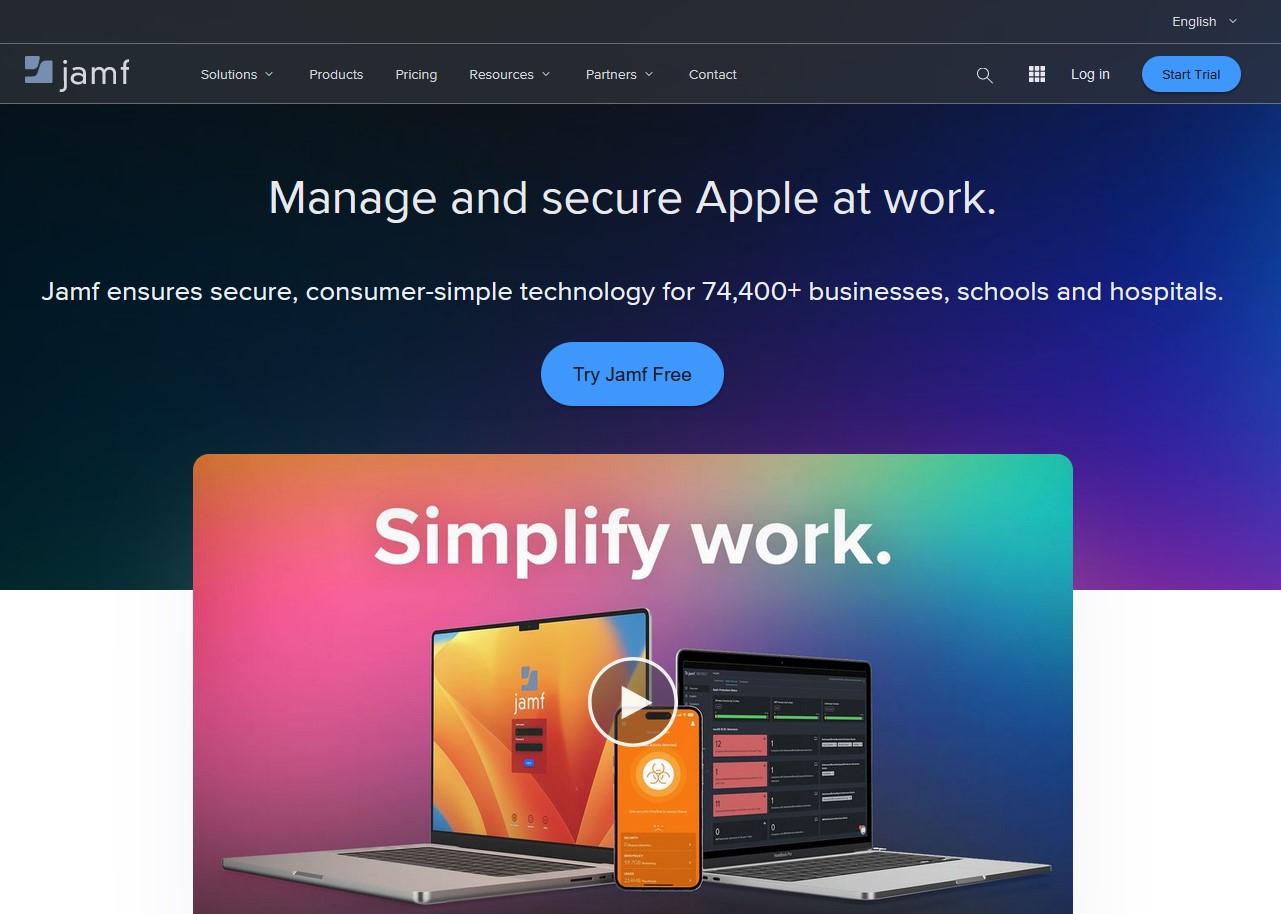
Jamf
Jamf Connect stands out as a significant tool in the ZTNA landscape, offering organizations a solid approach to boost security and manage access. Its integration is smooth, the user experience is refined, and its emphasis on identity-based security is noteworthy. Although there's room for improvement in certain aspects to achieve a more all-encompassing solution, Jamf Connect provides a strong foundation for organizations aiming to improve their Zero Trust Network Access capabilities.
Jamf Connect's pricing strategy, based on a per-device model, renders the solution highly scalable, fitting the needs of businesses, regardless of their size. Nonetheless, it's important to note that there is a minimum device requirement for setting up an account, a detail that Jamf discloses during the sign-up process. It's also crucial to understand that this tool is specifically designed for managing Apple devices and is not compatible with Windows or Linux systems.
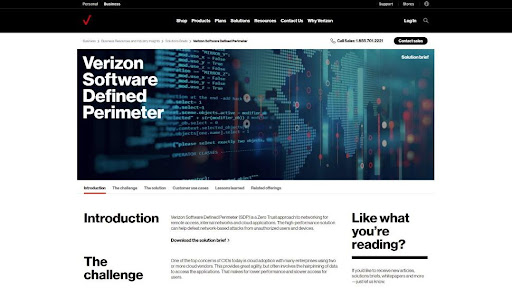
Verizon
This high-performance zero-trust solution can protect your IT systems from network-based attacks resulting from unauthorized users and devices. Its zero-trust approach is applied through internal network segmentation, cloud-based apps, and remote access control.
Verizon’s SDP enables continuous, real-time visibility into all protected apps, as well as their users, and the devices they’re using to access them, giving you an insight into the inner workings of your networks. Its MFA is “always-on”, protecting your network from credential-based attacks (such as pass-the-hash) and creating TLS tunnels to avert man-in-the-middle (MITM) attacks.
It’s also a surprisingly simple service you can install for yourself and obtain total transparency of your networks. However, to get the pricing and start with Verizon, you’ll have to call sales staff or request a callback.
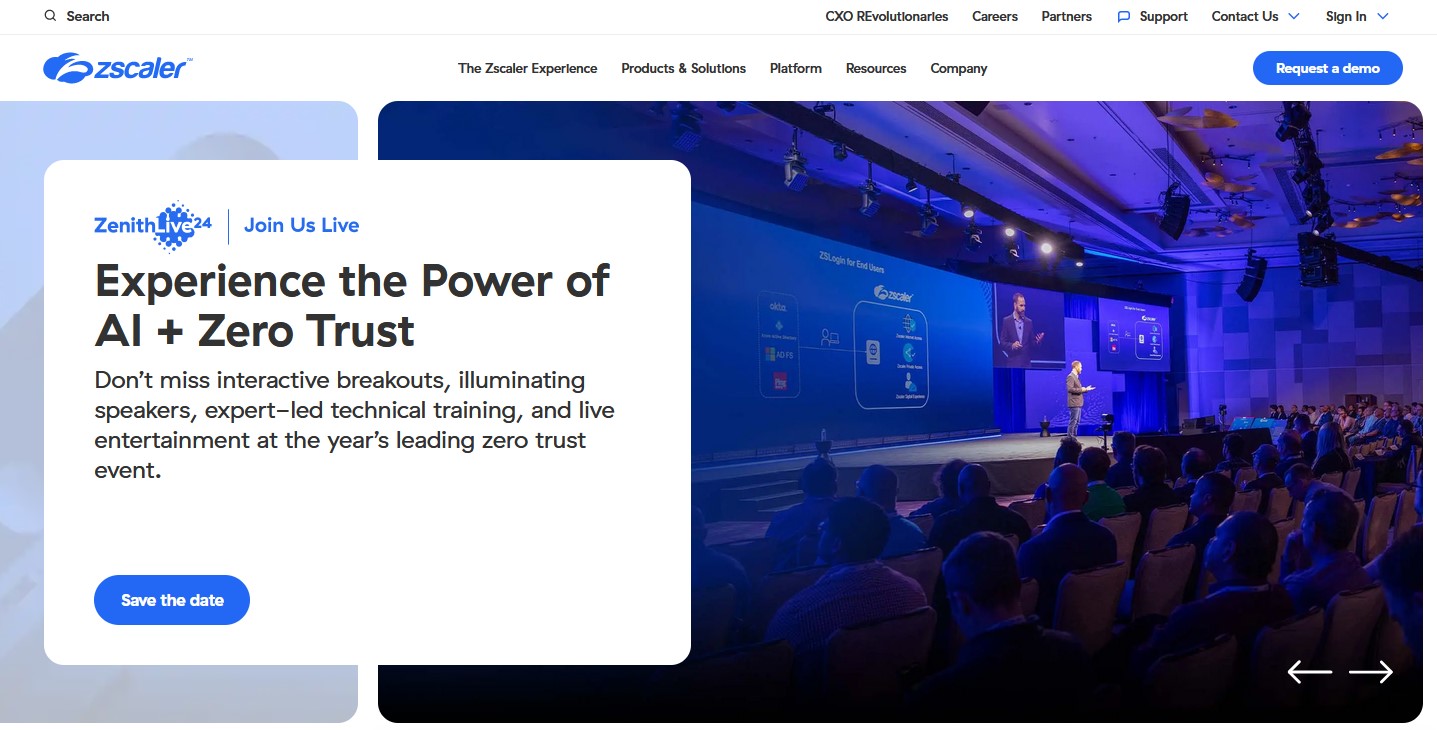
Zscaler
Founded over a decade ago, Zscaler is a US-based cloud security company created to enable their enterprise-level customers to secure their employees, apps, and data at the time when infrastructure is moving to the cloud and more and more employees are working remotely.
Keeping up with the technology trends, Zscaler released its own SDP solution that combines strong security and a satisfying user experience while making all your systems and apps invisible to unauthorized users and safeguarding your sensitive data.
Zscaler is simple to set up and control yet it offers superb scalability, high availability, and near-perfect protection.
If you want to check out how Zscaler closes security gaps for yourself, you can request a demo and perhaps even take a free ride.
Pick up an SDP and get started with zero-trust security
To sum it all up, SDP solutions properly fill gaps between VPNs and firewalls, providing security for data, across all end-points. Thanks to its zero-trust paradigm, no resources will be released until users have been verified. Solutions that provide MFA and biometrics give an additional layer of protection, though more work for the end user. Enhanced network security is the ultimate outcome, as malevolent actors are unable to detect any network resources.
The significance of SDP technologies in today's network frameworks is paramount, especially given their flexibility and scalability in a time marked by increasing remote work and cloud-centric business operations. If you’re looking to get started, our suggestion would be to test out the above-mentioned solutions, especially ones with a free trial/demo, or money-back guarantee.
- You might also want to check out the best business VPN
Sead is a seasoned freelance journalist based in Sarajevo, Bosnia and Herzegovina. He writes about IT (cloud, IoT, 5G, VPN) and cybersecurity (ransomware, data breaches, laws and regulations). In his career, spanning more than a decade, he’s written for numerous media outlets, including Al Jazeera Balkans. He’s also held several modules on content writing for Represent Communications.
